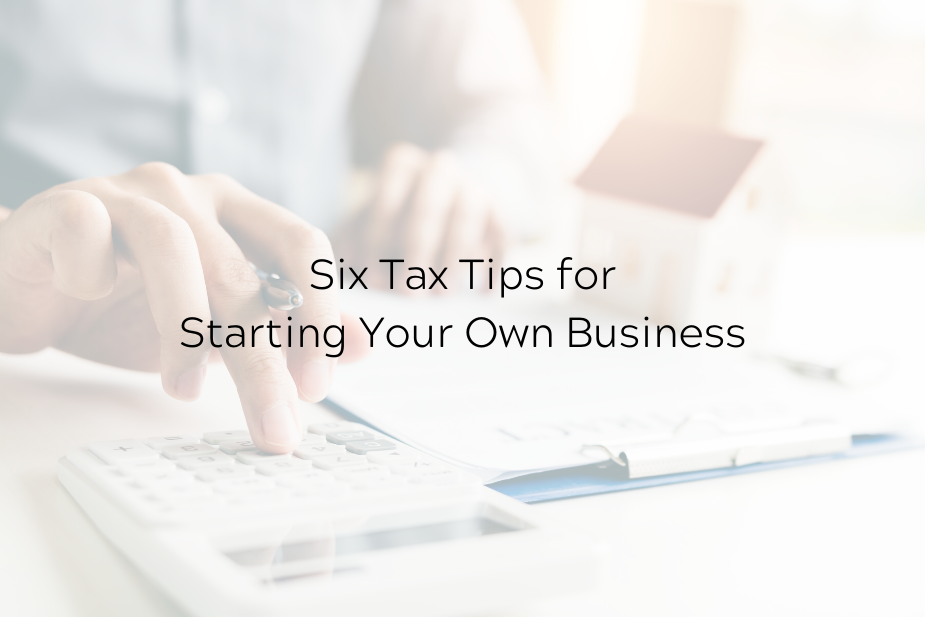Follow These Tips For Getting A Great Start
Starting a new business can be an incredible adventure but it also comes with significant challenges.
Some of the tax and financial decisions you make at the beginning of your business can strongly impact its future.
Here are six steps you should take at the start to position your new business for success.

- Pick the Right Business Structure
Most small businesses operate under one of five different business structures:
- Partnership
- Sole proprietorship
- Limited liability company (LLC)
- Corporation
- S-Corp
Choosing the right one from the start can be crucial to your business, as it has a profound impact on how you do your taxes and how much you pay.
It’s essential to sit down with an accountant to discuss which one would be best suited to your business ideally at the outset.

- Start Paying Taxes Early
Salaried employees have their taxes taken out of their paycheck by employers. As a small business owner, you have to do that for yourself.
Most businesses that expect to owe income taxes of $1,000 or more are required to pay estimated taxes on a quarterly basis throughout the year (an exception is corporations, which have to pay quarterly taxes if they expect to owe $500 or more).
If you qualify, it’s important to start setting aside and paying quarterly taxes as you go, otherwise you could be faced with a large tax bill later on.
A professional accountant can sit down with you at the start of your business and help you plan how to pay your quarterly taxes.
- Keep a Record of All Your Expenses
What qualifies as a business expense varies widely depending on the type of business you run. Anything could be a business expense – from things like vehicles and computers to makeup and costumes if you’re a performer.
The self-employed often have a higher tax burden overall than salaried employees whose employers pay part of their taxes – including Social Security, Medicare, and federal unemployment taxes.
Writing off your expenses makes the tax burden more bearable—but you have to document everything. Sit down with a professional to determine what expenses you need to track, and how to simplify the process.

- Choose Your Accounting Method
There are several ways to manage your accounting, but most small businesses use either the cash or accrual method.
Under the cash method, you report your income and expenses in the same year you receive them or pay them out. With the accrual method, you report those things the year you invoice or record them—not the year you receive or pay.
So if you invoice a client on December 15th and the client takes until January 1 to pay, under the cash method you’d report that amount in the new year, while with accrual, you report it for the prior year.
Again, each method works better for different types of income and businesses, so it can be helpful to sit down and discuss this with an accountant before picking a strategy.

- Employee Taxes and Benefits
Do you plan to do everything yourself in your business, or will you need to hire employees? And will those employees be salaried, hourly, or contract workers? Will you need to provide benefits?
These are all crucial, complex questions that can have a serious effect on your tax and reporting obligations. There are, however, also key tax credits that may be able to help you out. A professional accountant can help you sort through it.

- Talk with a Knowledgeable Bookkeeping Professional
Starting a small business? Talk to a bookkeeping and accounting professional at the outset and set up the processes and structures now that will position your business to thrive later on.
Give us a call at (415) 455-9455, or send us an email by filling out the form to schedule a free consultation at our downtown San Rafael office.
- Preparing Your Tax Documents - February 1, 2024
- Making of a Successful Team Environment - December 31, 2023
- Got a Mistake on Your Tax Returns? - September 3, 2023

